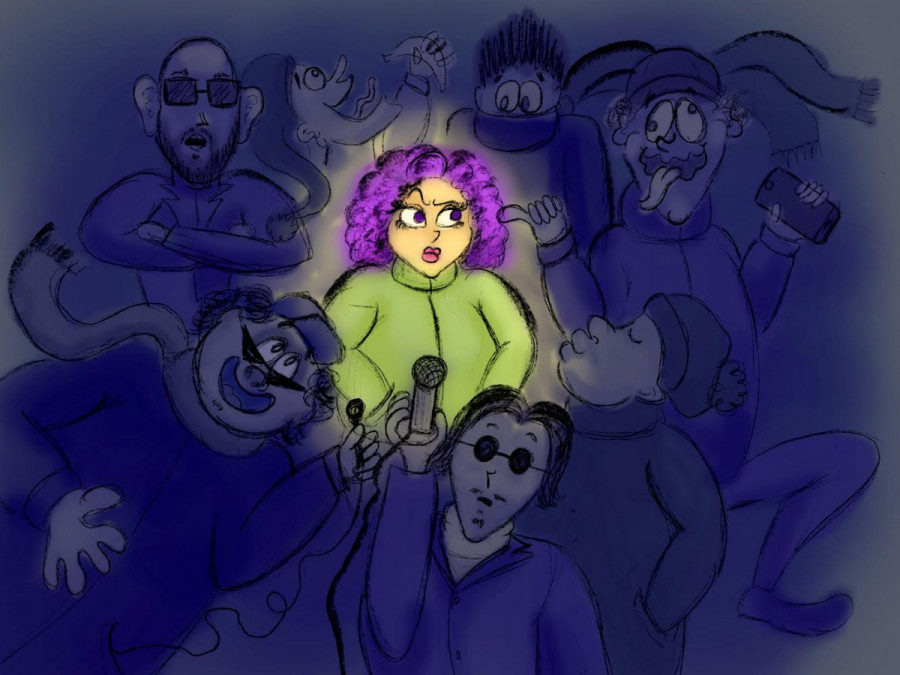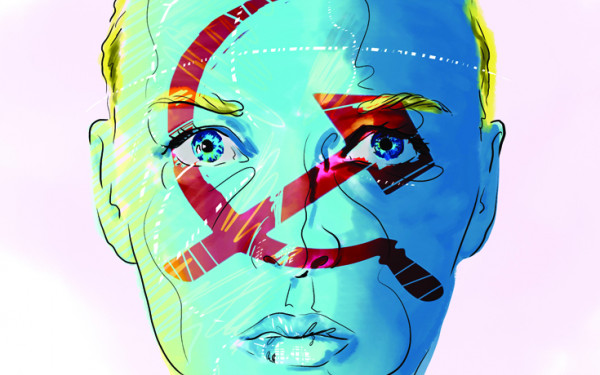The Misogyny-Coded Street Interview
Everything is Not What it Seems, the Pretence of the Street Interview’s Open Conversation Conceals Something Sinister
Navigating the internet today, unfortunately, requires filtering through debate and activism surrounding issues of men’s rights used to devalue feminist rights. Recognizing these harmful ideas for what they are is often pretty easy.
TikTok creator Drew Afualo built a following of 7.9 million users by poking fun at creators that spread misogynistic, borderline incel ideas on the platform. Involuntary Celibate, or Incels, are men who blame women for their sexless lives. The word is associated with anti-women ideologies. It is connected with many events of mass violence which have occurred recently. The content that Drew Afualo responds to in her TikToks is outwardly anti-feminist and anti-woman, making it easy to debunk and ridicule.
TikTok street interviews, on the other hand, pass almost undetected by Afualo, even though at their core they spout the same misogynistic ideas–albeit through a kinder, admissible form of content.
You may have stumbled upon these videos on your 'For You' page or perhaps you have seen critiques of them on other platforms like Twitter and YouTube. Kurtis Connor, a content creator with a mass following on both YouTube and TikTok, has built an audience through critiquing this form of content. The street interview format is well established on TikTok with the hashtag street interviews amassing over 983.6 million views. Just last year, Connor posted a YouTube video entitled TikTok ‘Interviews’ are Insufferable which garnered about 3.7 million views.
On the surface, the street interview is impartial, unbiased, fair and open. Certain content creators are using this format to avoid overt anti-feminism by presenting it as off-the-cuff banter, and the interaction as an open conversation; it is clearly anything but. The spreading of misogynistic or incel ideas through street interviews is especially insidious. In his paper, Forks in the Road of Men's Gender Politics: Men's Rights Vs Feminist Allies', Micheal Messner concludes that today, overt anti-feminist backlash is outwardly condemned, making way for the more subtle variety of misogyny. The street interview is just that.
Take, for example, Montreal-based TikTok account @omar.hartyy which produces exclusively street-interview style content. There is a substantial power imbalance between the interviewer and the interviewee in their videos. Most of their TikToks are shot on Saint-Laurent Blvd., a street well-known for drinking and partying. Filming in this location is a deliberate choice that @oman.hartyy knows will result in many interviewees being drunk or altogether unprepared to give well-thought-out responses. I mean, who could come up with a smart response outside a bar at 2 a.m. with a random guy flashing his phone in their face?
With close to 400,000 followers, the TikTok account @thedesirabletruth is also guilty of perpetuating a power imbalance between the interviewer and interviewee. Just like @omar.hartyy, they only film content where people are expected to be drinking and partying. Out of the 124 TikToks posted to their account only 15 of them are filmed during the daytime and even those are filmed at a university event where people are usually drinking. This is an obvious strategic choice to ensure that their misogynistic ideas will not be successfully challenged.
In their text Micro-celebrities of information Jessica Maddox, a professor in the Department of Journalism and Creative Media at the University of Alabama, proposes the term calibrated expertise to describe a performance strategy in which social media, platform dynamics, and aspects of micro-celebrity are harnessed to impart information. @thedesirabletruth presents themselves as “the voice of the people” and the voice of “the desirable truth” in their TikTok account bio. Although not legitimate experts, the aforementioned accounts –and others like them– utilize platform dynamics and their micro-celebrities to legitimize themselves and the information they share. Essentially they are benefiting from the performance strategy that is calibrated expertise without truly being experts.
This is why @omar.hartyy, @thedesirabletruth or another similar account @itscomplicatedchannel present their questions in a leading manner. The unquestioned legitimacy of their claims and assumptions is how these videos are successful at holding a social impact. Questions often asked are: “why should men care about a woman’s body count?”, “are you going to get lucky tonight?”, “can you name any rights that men have that women do not”, or my personal favourite “what are some of the mind games women play with men?” The views echoed in these types of questions are obviously anti-feminist, anti-woman.
The pretense of an open discussion in these street interviews ultimately results in the discrediting of women, their experiences, thoughts, feelings, and knowledge. These accounts put forth their claims as the established truth, yet nowhere are we given any evidence.
In @itscomplicatedchannel’s question “Can you name any rights that men have that women do not?” We see reflected a popular incel idea which claims that there is no true inequality between men and women because they share the same legal rights. Of course, there are countless examples to prove this is untrue.
In Canada, between 2015 and 2020, 47 per cent of murdered Indigenous women over the age of 15 were killed by an intimate partner. Non-Indigenous women also had a high risk factor at 49 per cent, while Indigenous men and non-Indigenous men were drastically lower, at 7.3 percent and 4.6 per cent, respectively. Moreover, according to the Canadian pay equity act men and women are supposed to be paid the same salary for the same position, yet women make 89 cents for every dollar men make and only 16 per cent of women and gender diverse people with a physical disability report being fairly paid compared to their peers.
To add insult to injury, women are asked to defend themselves against made-up anti-feminist claims while having no control over how they are being represented. It is the creator that controls the production of the content. They decide who to interview, the questions that will be asked, what parts of the interview will be posted, and its caption. The women interviewed have no real opportunity to rebut or clarify their statements which nullifies any claims of true open discourse. It is rigged from the beginning. The creators control the audience's perception and its subsequent discourse. The majority of the audience's responses are therefore biased towards the interviewer and derogatory towards the woman interviewee.
The subtle implication that a woman’s worth is determined by her sexuality echoes incel ideology. In one of @omar.hartyy’s videos, he asks a young girl if she is getting laid tonight. She responds “no,” explaining that she is a virgin. A comment then reads “if that’s true then she’s a 10.” Other comments seen on @thedesirabletruth’s page that also echo incel ideology promote the idea that women are stupid by stating things like: “genius, how she redirected the question to make herself look like the victim,” “she’s a walking red flag.”
In her text The Male Gaze Is More Relevant and More Dangerous Than Ever, Kelly Oliver, a professor at Vanderbilt University, posits that social media was “invented as part of a culture that objectifies and denigrates girls and women, what we might call the culture of the male gaze.” The women in these TikTok street interviews are framed, set up, and controlled to fit the male gaze. They have no agency over their image.
The misogyny-coded street interviews are a manifestation of the male gaze’s need to master and control its object, women. Creators like @thedesirabletruth, @itscomplicatedchannel and @omar.hartyy reiterate the social subordination of women. It does so not through overt anti-feminism but through a more subtle dominance and discrediting of women. Their approach is strategically manufactured and wilfully intentional. It's time to critically examine the content we consume and recognize the power structures at work. These videos aren't organically made, they're fabricated for the sake of perpetuating sinister and profoundly sexist beliefs. Misogynistic ideas are all over the internet often simply masquerading as something blameless. These videos can’t exist without the public, we don’t need to be playing into their hand by participating even through passive viewership.


_600_832_s.png)


_600_375_90_s_c1.JPG)

